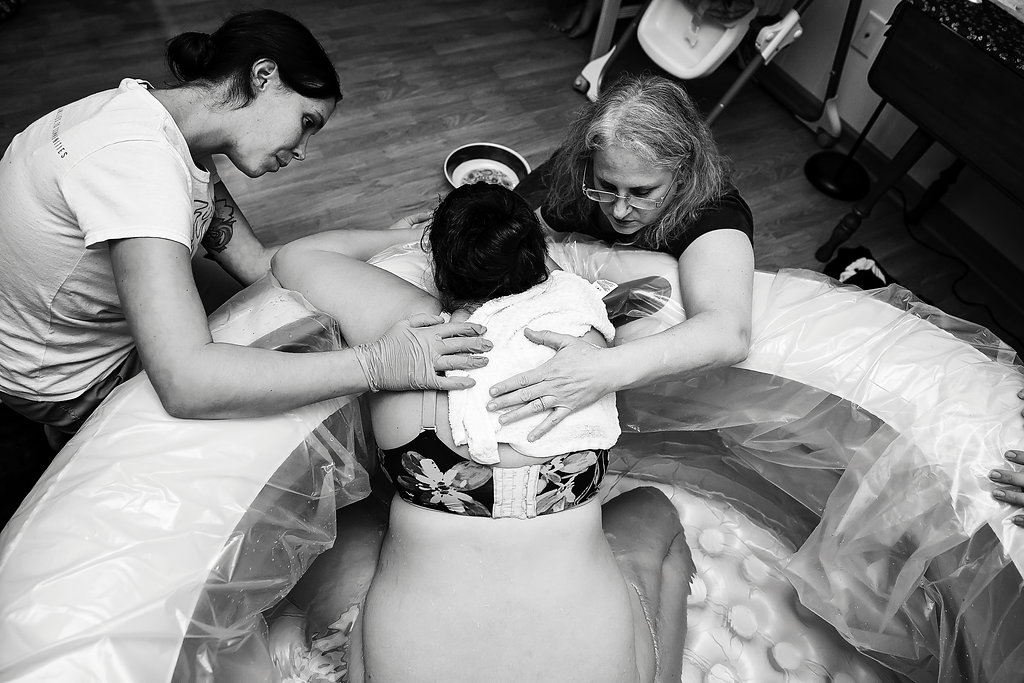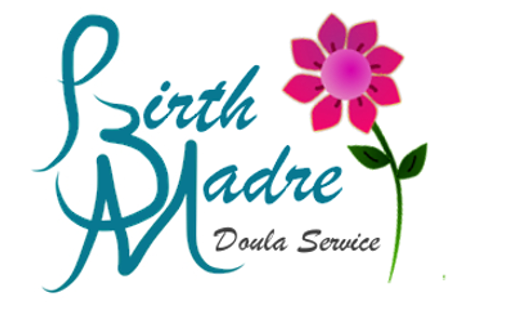What’s a Doula?

Photo credit: Michelle Lynn, Hampton Roads Birth Photographer
People often ask me if a doula is the same thing as a midwife, or need some additional information to understand what it is, exactly, that a doula does.
A midwife is a medical provider. This would include homebirth midwives. A doula, on the other hand, is a highly trained professional who provides physical, emotional, and sometimes spiritual support to laboring women. They don’t take the place of partners or other support people, but make it their goal to provide “invisible” support. In other words, a doula’s presence is known, but not intrusive. We don’t speak on a client’s behalf to providers or make decisions for them, but rather help our clients get the information they need to make informed decisions. We are there to say, “This is normal,” to calm uneasiness. We are on watch when partners need to take a break, take a nap, or get some food. I like to call doulas the new “old profession,” as women have been supporting women giving birth for many centuries.
The best explanation of a doula that I’d like to share is described on DONA’s website:
The word “doula” comes from the ancient Greek meaning “a woman who serves” and is now used to refer to a trained and experienced professional who provides continuous physical, emotional and informational support to the mother before, during and just after birth; or who provides emotional and practical support during the postpartum period.
Studies have shown that when doulas attend birth, labors are shorter with fewer complications, babies are healthier and they breastfeed more easily.
A Birth Doula
- Recognizes birth as a key experience the mother will remember all her life
- Understands the physiology of birth and the emotional needs of a woman in labor
- Assists the woman in preparing for and carrying out her plans for birth
- Stays with the woman throughout the labor
- Provides emotional support, physical comfort measures and an objective viewpoint, as well as helping the woman get the information she needs to make informed decision
- Facilitates communication between the laboring woman, her partner and her clinical care providers
- Perceives her role as nurturing and protecting the woman’s memory of the birth experience
- Allows the woman’s partner to participate at his/her comfort level
A birth doula certified by DONA International is designated by the initials CD(DONA).
Research evidence shows that the quality services of a postpartum doula can ease the transition that comes with the addition of a baby to a family, improve parental satisfaction and reduce the risk of mood disorders.
A Postpartum Doula
- Offers education, companionship and nonjudgmental support during the postpartum fourth trimester
- Assists with newborn care, family adjustment, meal preparation and light household tidying
- Offers evidence-based information on infant feeding, emotional and physical recovery from birth, infant soothing and coping skills for new parents and makes appropriate referrals when necessary
A postpartum doula certified by DONA International is designated by the initials PCD(DONA).
DONA’s documentary, The Essential Ingredient: Doula, gives some background and information on doulas.
